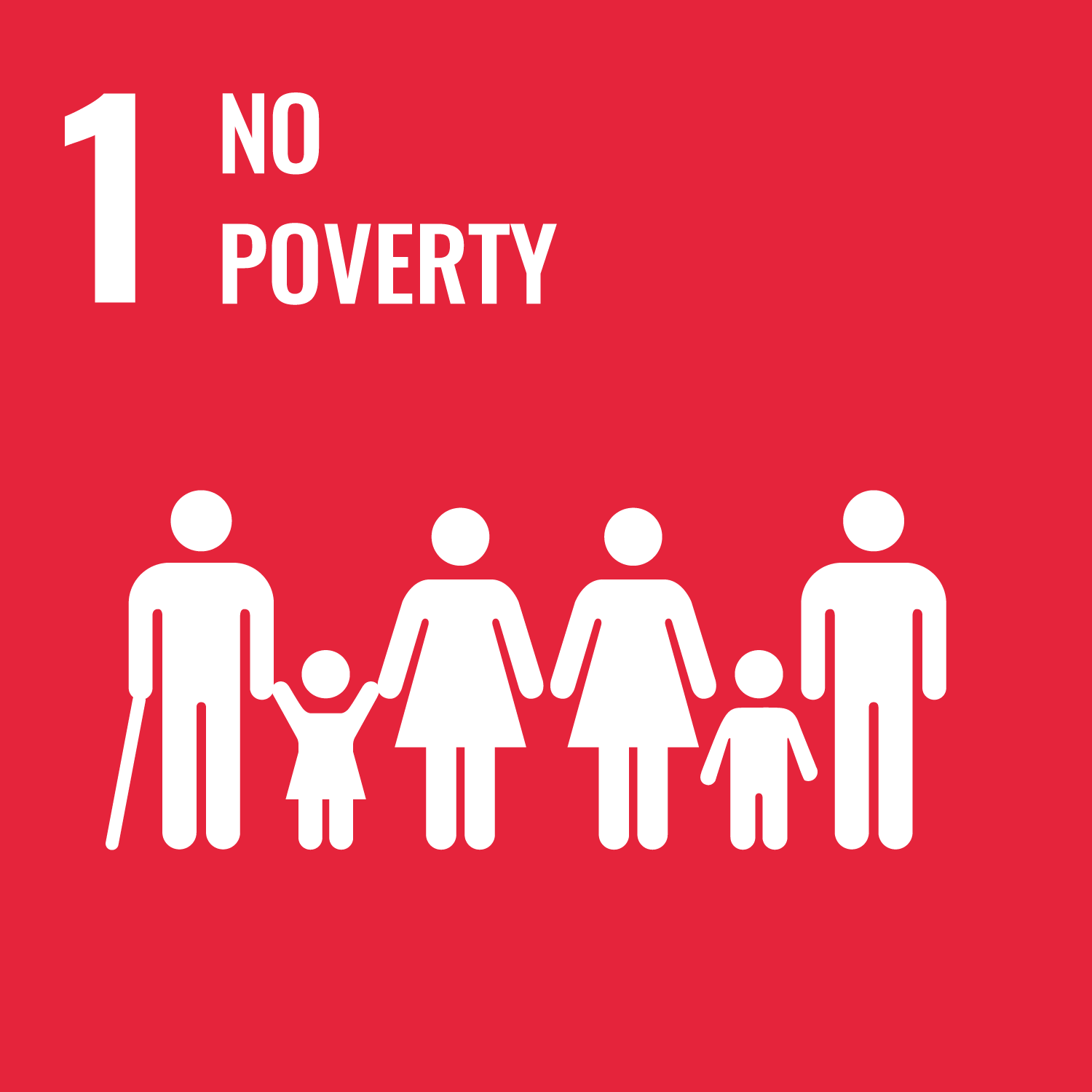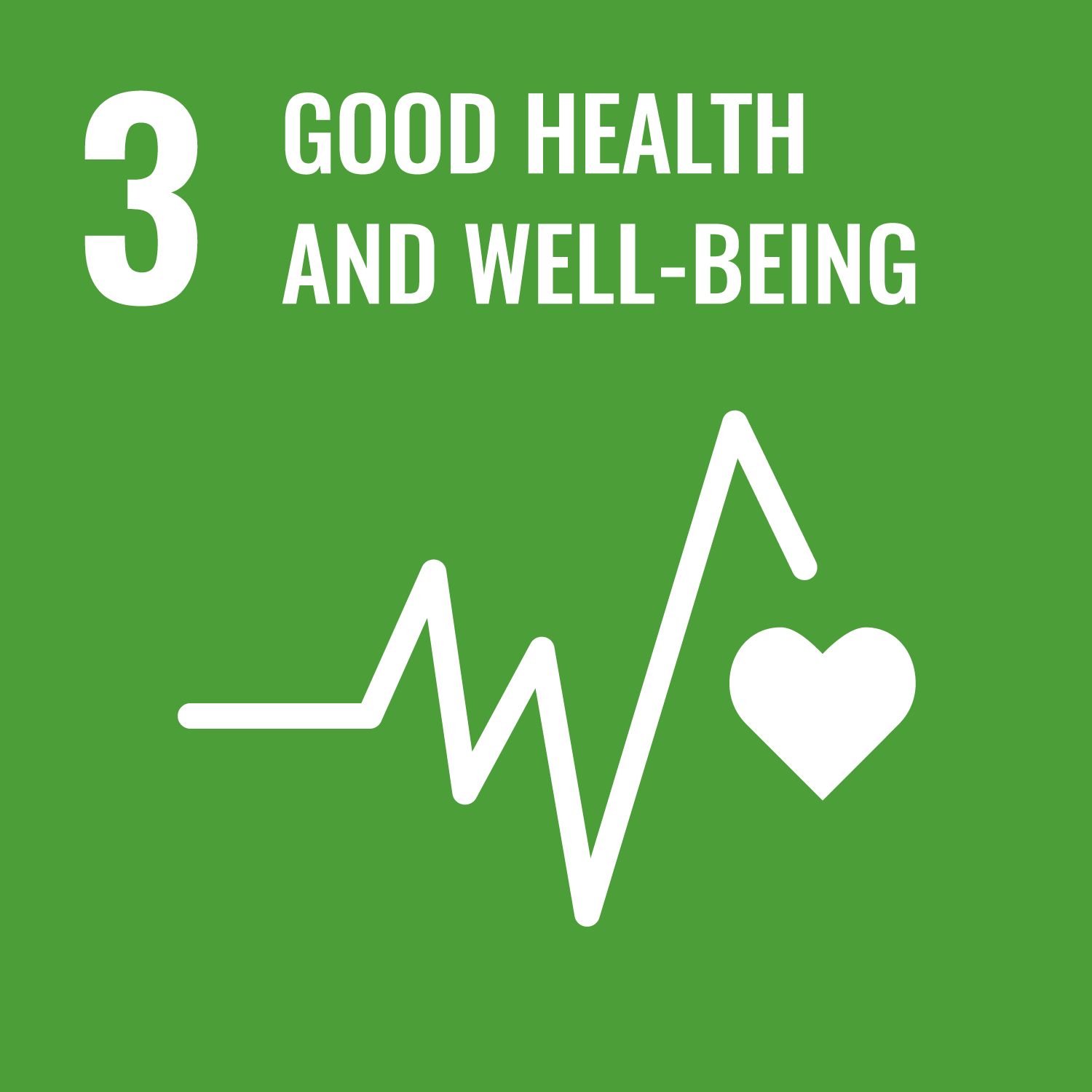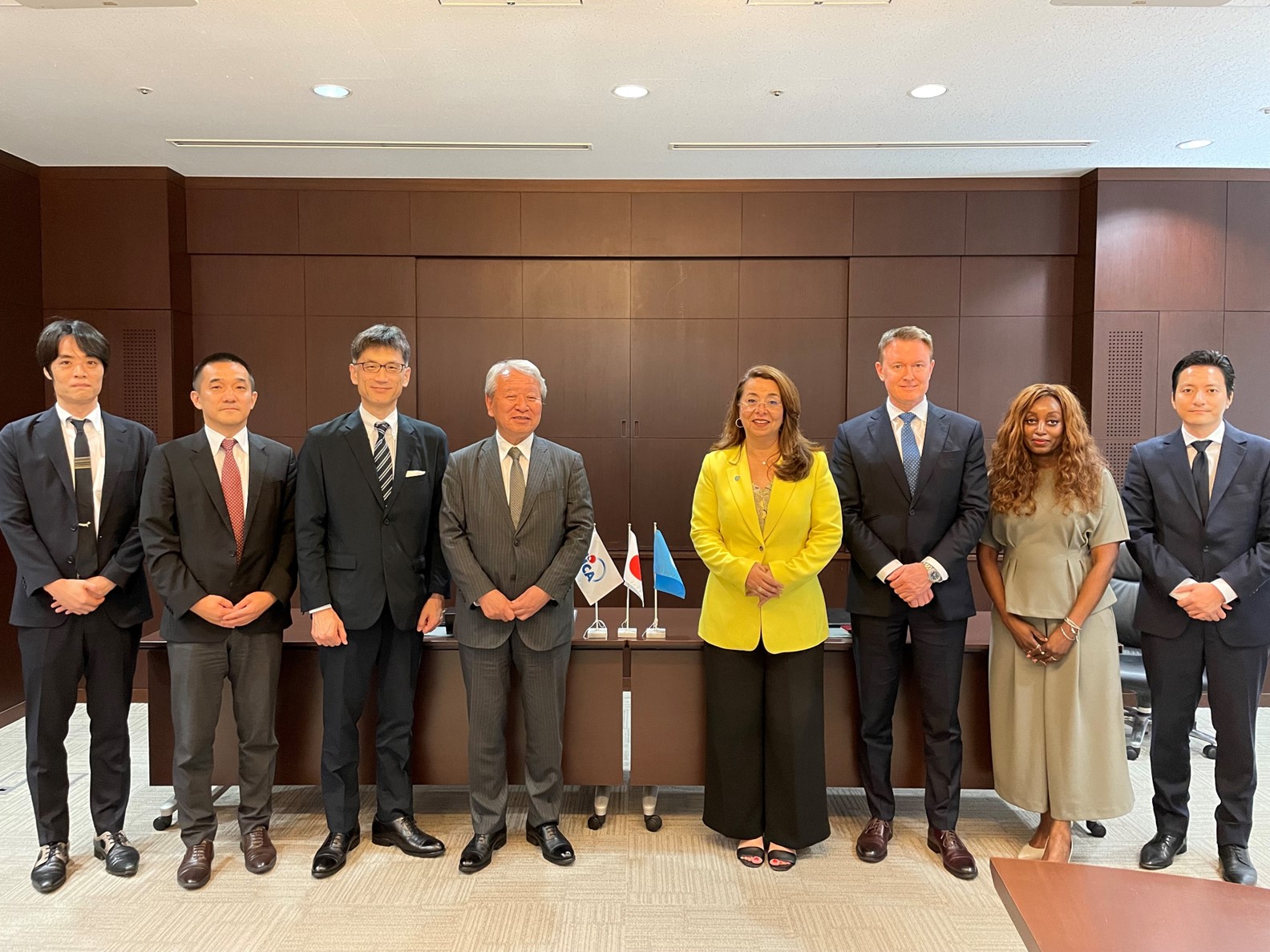Meeting Between JICA President Tanaka and UNODC Executive Director Waly, and the Signing of a Grant Agreement for Afghanistan: Contributing to the reduction of health risks through drug control support


2024.07.18
On July 4, JICA President Tanaka Akihiko met with Ms. Ghada Fathi Waly, Executive Director of the United Nations Office on Drugs and Crime (UNODC) at JICA Headquarters. During this meeting, a grant agreement was signed to provide grant aid of up to 1,514 million yen for The Project for Strengthening Counter-narcotics Capacities in Afghanistan.
At the beginning of the meeting, President Tanaka expressed gratitude for the collaborative efforts between the two organizations including the grant aid for Afghanistan. In response, Executive Director Waly explained UNODC's activities in the African and Southeast Asian regions, and expressed her hope to further deepen the collaborations with JICA. Furthermore, views on support for counter-narcotics measures in Afghanistan and importance of law enforcement capabilities in the African regions were exchanged.
The meeting concluded with the signing of the grant agreement.
In Afghanistan, amidst an unprecedented economic and humanitarian crisis exacerbated by prolonged conflict and instability, illicit drug use is on the rise, leading to severe health consequences.


A scene from the meeting

President Tanaka (left) with the Executive Director Waly
Poppy is one of the raw materials used in the manufacturing of illicit drugs, and at one point, over 80% of the world's supply was produced in Afghanistan. Since illicit drugs produced are widely distributed not only domestically but also internationally, the response to poppy cultivation in Afghanistan is positioned as a global issue. An announcement in 2022 banning the cultivation of poppy and other plants used for illicit drugs significantly reduced poppy cultivation in Afghanistan. Many farmers who previously cultivated poppy switched to alternative crops such as wheat. However, the income from alternative crops is significantly lower than that from poppy cultivation, raising concerns that more farmers may resume poppy cultivation due to its higher profitability.
This project aims to reduce health hazards associated with illicit drug use by promoting alternative crop farming and rehabilitating the facilities for treating illicit drug users in three Afghan provinces where poppy was especially widely cultivated. This project will contribute to achieving SDGs Goals 1 (No poverty) and 3 (Good health and well-being).
Details for the project are provided below.
| Country | Islamic Republic of Afghanistan |
|---|---|
| Project title | The Project for Strengthening Counter-narcotics Capacities |
| Maximum grant amount | 1,514 million yen |
| Planned implementation period | 24 months |
| Executing agency |
United Nations Office on Drugs and Crime (UNODC) |
| Target region | Helmand province, Kandahar province, and Badakhshan province |
| Specific project details (provisional) |
1. Construction and/or rehabilitation of the facilities 2. Procurement of equipment 3. Awareness-raising activities and technical support |
scroll